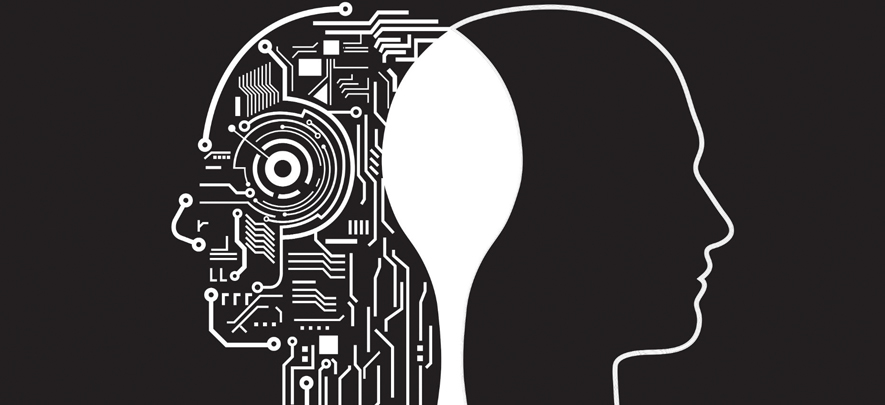The Smart Squad

Retail
342 week ago — 7 min read
Recently, electronics store chain Croma launched its tech-centric premium store format – Gadgets of Desire. The store, created with the expert help of Networkbay Retail, offers the ‘wider-than-store’ feature, the immersive demo experience in the sound category and an exclusive IoT (Internet of Things) zone to experience the entire IoT ecosystem.
There are murmurs in the industry of more experience led stores coming up in different formats, clearly indicating the arrival of smart technology in Indian stores. Smart technologies are redefining retail backend such as supply chain and logistics. Let’s look at the customer-facing smart technologies and how they will impact customer experience and this business.
Artificial Intelligence in Retail
Artificial Intelligence (AI), a progression in automation, is already transforming retail. It enables retailers to not just anticipate demand but predict it by gaining a deep understanding of consumer behaviour. Most digital first retailers are already using AI to offer consumers personalised customer service through chatbots.
A chatbot is a computer programme that converses with a human using natural language. Though they can function without AI, an AI-powered chatbot is an extremely powerful customer engagement tool. It gathers intelligence from existing data, browsing history and purchase behaviour to become a virtual assistant that can talk to customers (texting / talking), ask them questions and guide purchases, bringing a whole new level of personalisation to the experience. AI-powered chatbots are ushering in conversational commerce, touted as being the future of digital shopping.
In a survey of UK retailers published in 2017, 38% of respondents were already applying AI to their business operations. Similarly, a 2017 survey of the top 500 North American retailers by research firm BRP found that 14% have already adopted AI-powered chatbots and digital assistants, while a further 32% plan to introduce the technology in the next three years.
The trend is that retailers are collaborating with startups and tech firms to apply AI to their business mainly in three areas: Customer Assistance, Personalisation and making sense of unstructured data. AI-based robots may also soon help retailers replace manpower on the shop floors. According to market research firm Tractica, revenues generated from AI worldwide are expected to grow by a CAGR of 53% in the period from 2017 through 2025 and may touch $36.8 billion. Of all the technological strides in retail and other industries, AI is considered the most powerful with wide-ranging implications for business.
Internet of Things (IoT)
According to Coresight Research, IoT in retail has the potential to transform the way physical stores operate, how they are managed and how they interact with customers. Signs of the profound impact that digital technologies have on brick-and-mortar operations are already visible. IoT is expected to propel innovation in stores, improve the overall experience, and enhance personalisation. It is being increasingly used in payments and interactive digital signage at the front-end and supply chain management at the back-end.
According to Global Market Insights, increasing penetration of advanced technologies such as sensors, Bluetooth Low Energy (BLE), NFC and RFID tags is expected to drive IoT in retail. An effective implementation of IoT was by Carrefour. In 2015, the chain introduced Visible Light Communication (VLC) at its stores to send promotional offers to shoppers based on their location in the store using light sources such as smart LED lights.
Considering its potential, IoT hasn’t picked up as much as it was expected due to issues associated with data privacy & security. This hurdle notwithstanding, Cognizant predicts that by 2025, The Internet of Things (IoT) will be a workhorse technology for stores, with broad applications throughout store aisles and operations.
Augmented & Virtual Reality
Augmented Reality & Virtual Reality are strengthening their roots in e-commerce and retail. “The beautiful thing about AR is that it doesn’t replace people like robotics or automation does. Instead, it empowers people. It is an investment in people,” said an AR professional.
Investment in AR and VR is also investment in customer experience as it is the sure-shot way to offer exciting and immersive experiences at the store or even away from it. According to experts, they help deepen shopping engagement, regardless of whether shoppers own a headset or ever plan to use one. A case in point is the Ray Ban app that allows consumers to overlay any model of sunglasses onto their faces. Sephora app allows customers to try different kinds of make-up and decide their look. With the IKEA app customers can place any piece of furniture in their homes and check if it goes with their décor.
With AR and VR, retailers can achieve tremendous savings in cost as it helps re-create physical environments without having to actually build them. According to industry analysts, AR and VR will become a $150 billion industry by the year 2020.
Why Smart Tech?
Efficiency: Technologies like AI and IoT both help replace repetitive manual tasks. They also help retailers with more accurate demand forecasting and inventory management, resulting in marked improvement in efficiency and a significant increase in productivity.
Insights: The adoption of smart devices has generated large volumes of unstructured data. Using this data to generate insights and drive business decisions is imperative. Smart technologies, especially Artificial Intelligence, have been proven useful in making sense of the data deluge to help take critical business decisions.
Innovation: Smart technologies are reinventing retail across product cataloguing, merchandising, customer experience and engagement, replenishment, demand forecasting, pricing, and logistics.
Get Smart
Hitherto, we have only been discussing futuristic technologies without actually having done anything about them, often hoping that they are trends that will pass. However, with the growing number of examples of application of AI, IoT and AR/VR in actual retail environments, that too right here in India, it is clear that smart technologies are not mere buzzwords. They are disruptions that will catapult us into the future. The question is: Do we know how to ride this wave of disruption?
To explore business opportunities, link with me by clicking on the 'Invite' button on my eBiz Card.
Article source: STOrai Magazine
Disclaimer: The views and opinions expressed in this article are those of the author and do not necessarily reflect the views, official policy or position of GlobalLinker.
Network with SMEs mentioned in this article
View Shiv 's profile
Most read this week
Trending
5 Must-Have Emails for Your Online Store
Ecommerce 86 week ago














Comments (3)
Share this content
Please login or Register to join the discussion